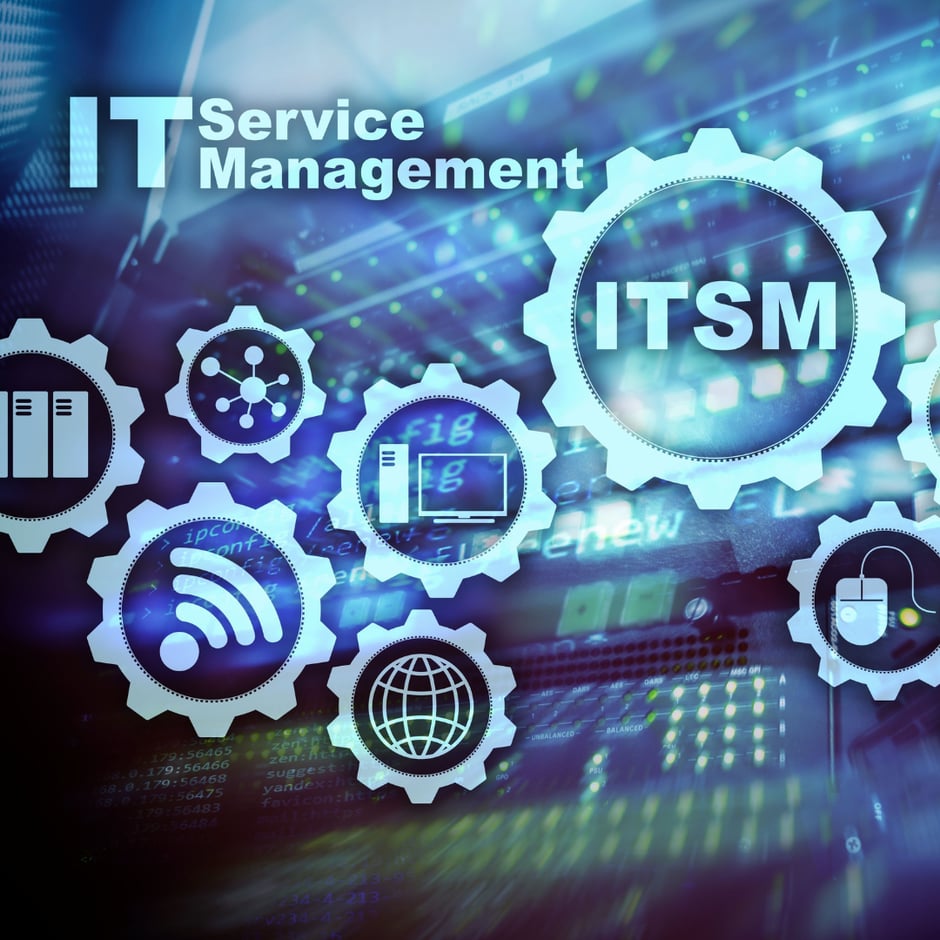
Businesses need reliable IT support and Managed IT services offer a solution. They provide expert help without the need for a full-time team.
Finding the right provider nearby can be challenging. It's crucial to understand what managed IT services entail. This knowledge helps in making informed decisions.
Managed services providers (MSPs) offer a range of IT solutions. These include network management, cybersecurity, and cloud services. Understanding the MSP industry is key to choosing the right partner.
This guide will help you navigate the MSP space. Learn how to find the best managed IT services near you. Make the right choice for your business needs.
What Are Managed IT Services? Understanding the Basics
Managed IT services involve outsourcing IT functions to experts. These experts are known as Managed Services Providers or MSPs. MSPs handle various IT tasks to help businesses focus on core activities.
The main aim of managed IT services is proactive management. This means they anticipate and prevent IT issues before they occur. Businesses benefit from reduced downtime and increased efficiency.
MSPs offer a wide range of services. These include:
- Network management
- Cybersecurity
- Data backup and recovery
- Cloud services
By outsourcing these functions, companies gain access to the latest technology. They also get expert support without needing an in-house IT team. This arrangement is both practical and cost-effective.

Managed IT services provide a tailored approach. Each business receives services specific to its needs. This ensures that IT support aligns with the company's strategic goals.
Additionally, MSPs monitor systems 24/7. Constant monitoring helps identify and address issues swiftly. Continuous oversight enhances security and operational reliability.
Businesses today face growing IT demands. Managed IT services offer a flexible and scalable solution. Whether your company is small or large, MSPs can adapt to meet changing IT needs.
The Managed Services Provider (MSP) Industry: Growth and Trends
The MSP industry is experiencing rapid growth. Businesses are increasingly relying on technology. This shift is driving demand for MSPs.
MSPs provide specialized expertise. They deliver cost-effective solutions for complex IT challenges. Their role has become crucial in today's digital landscape.
Key trends in the MSP space include:
- Increased focus on cybersecurity
- Growth in cloud services and remote work solutions
- Adoption of artificial intelligence and automation

Cybersecurity is a top priority for many MSPs. As threats evolve, businesses need robust protection. MSPs offer advanced security measures and protocols.
Cloud services are also on the rise. They offer flexibility and support remote work. MSPs are leveraging cloud solutions to enhance business operations.
Additionally, the MSP industry is adopting AI and automation. These technologies optimize IT processes and improve efficiency. Staying ahead of these trends ensures MSPs remain competitive.
Overall, MSPs are vital partners for businesses navigating the ever-changing tech landscape. They help organizations stay competitive and secure.
Defining MSP Services: What Does an MSP Do?
Managed Services Providers (MSPs) are vital in modern business environments. They handle a variety of IT services outsourced by companies. Understanding their offerings helps in selecting the right provider.
An MSP typically oversees several key areas:
- Network management and monitoring
- Cybersecurity and threat detection
- Data backup and recovery
- Cloud computing and support
- IT strategy and consulting

Network management ensures systems run smoothly. MSPs monitor networks for issues and resolve them proactively. This minimizes downtime and boosts productivity.
Cybersecurity is another critical service. MSPs protect data against breaches and cyber threats. They implement security protocols tailored to business needs.
Data backup is essential for disaster recovery. MSPs ensure continuous data availability. This service is vital for business continuity.
Cloud services are also provided by MSPs. They enable secure, efficient remote work options. By managing these services, MSPs help businesses transition to digital operations seamlessly.
In sum, MSPs offer comprehensive IT support. Their services cover critical business functions. Choosing an MSP involves understanding these offerings.
Key Benefits of Managed IT Services for Local Businesses
Managed IT services offer significant advantages for local businesses. Outsourcing IT needs can lead to cost savings and enhanced efficiency. Here's how your business could benefit:
Firstly, MSPs reduce operational costs by eliminating the need for a large in-house IT team. They provide access to specialized skills without hiring additional staff. This approach allows businesses to allocate resources elsewhere.

Secondly, businesses gain access to advanced technologies. MSPs keep up with the latest IT trends and innovations. This access ensures that companies stay competitive in a fast-paced tech environment.
Additionally, MSPs offer flexible solutions that scale with business growth. As your business expands, so do the services from your managed provider. This flexibility helps in planning long-term IT strategies.
Another major benefit is improved security. MSPs prioritize cybersecurity, protecting businesses from threats. This protection helps safeguard sensitive data and ensures compliance with regulations.
Finally, businesses can focus on core activities. With routine IT tasks managed externally, internal teams can concentrate on critical initiatives. This focus can lead to increased innovation and business growth.
How to Search for “Managed IT Services Near Me”
Searching for reliable managed IT services locally involves a few strategic steps. Start by using search engines to look for "managed IT near me." Local directories and online reviews can provide insights into nearby providers.
Consider visiting business forums and networking groups. These platforms often discuss service providers' effectiveness and reputation. Engaging with others in your industry can yield useful recommendations.
 by KOBU Agency (https://unsplash.com/@kobuagency)
by KOBU Agency (https://unsplash.com/@kobuagency)
Check social media for regional tech groups. Members typically share experiences and suggest trusted MSPs. It's an excellent way to gauge public sentiment.
To narrow your options, compile a list of potential MSPs. Include details like the services offered and customer feedback. This information can help you compare providers effectively.
Finally, reach out to shortlisted MSPs for consultations. Initial interactions can reveal their expertise and willingness to meet your needs. This step is crucial in making an informed decision.
What to Look for in a Managed IT Services Provider
Finding the right managed IT services provider involves examining several critical factors. Start by evaluating the provider's range of services. A good MSP should offer comprehensive solutions, including cybersecurity, network management, and cloud services.
Consider their level of experience in your industry. Experienced MSPs understand specific challenges and can offer tailored solutions. Look for providers with a proven track record in managing IT environments similar to yours.

Review their service level agreements (SLAs). Ensure that SLAs clearly outline their commitments regarding response times and support availability. Quality SLAs can prevent future misunderstandings.
Assess their customer service quality. The provider should offer quick and effective support, ideally 24/7. Excellent customer service enhances your MSP experience.
It's also crucial to consider their pricing models. Look for transparent pricing and flexible terms. A provider that adjusts to your budget needs can be a good long-term partner.
Lastly, evaluate their approach to security and innovation. MSPs should provide robust security measures and stay updated with the latest technologies. Innovation ensures your business remains competitive in an ever-evolving IT landscape.
Evaluating MSP Experience and Reputation
When considering an MSP, their experience and reputation are key factors. Experience often translates to better service delivery and reliability. Check how long they've been in the managed services provider industry and their track record with similar businesses.
Reputation is equally important. Look for reviews and testimonials from other clients. Feedback can provide insights into their reliability and service quality. A strong reputation often indicates excellent performance and customer satisfaction.
.png?width=940&height=529&name=GAM%20Tech%20(13).png)
Create a checklist to guide your evaluation:
- Years of experience in the industry
- Client reviews and testimonials
- Industry-specific expertise
- Awards or recognitions received
Also, consider their involvement in the MSP space. Active participation in industry events or publications can signal commitment to growth and innovation. A reputable MSP will not only meet your current needs but also support your business as it grows.
Questions to Ask Before Choosing an MSP
Before selecting an MSP, ask essential questions to assess their fit with your business. Understanding their capabilities and approach is crucial.
Begin by inquiring about their service offerings. Ensure they align with your specific IT needs. It's also important to discuss their response times for support and resolution.
Financial considerations are vital too. Clarify their pricing structure and any hidden costs. This transparency helps avoid surprises later.
Here's a quick list of questions to guide your conversation:
- What specific IT services do you offer?
- How are your pricing and billing structured?
- What is your response time for IT issues?
- How do you tailor services to individual business needs?
Finally, explore their onboarding process and ongoing support. A seamless transition and continuous assistance are essential for a successful partnership. Asking the right questions upfront can help you choose an MSP that meets your expectations and supports your business goals.
The MSP Experience: Onboarding, Support, and Long-Term Partnership
Choosing a Managed Services Provider (MSP) is only the beginning. The onboarding process is critical to starting off right. A smooth transition ensures minimal disruption to your operations.
Reliable support is the backbone of any MSP relationship. Ensure they offer 24/7 assistance and quick response times. This reliability becomes vital during emergencies or critical downtime.
Long-term partnerships with MSPs offer numerous benefits. They provide continuous improvements and adapt to your evolving business needs. This adaptability can drive technological advancement and business growth.
Key elements of a successful MSP partnership include:
- Comprehensive onboarding process
- Proactive and responsive support
- Flexibility and scalability
- Commitment to continuous improvement

In conclusion, the right MSP will work closely with you, ensuring that IT management aligns with your business goals. Selecting an MSP that values long-term relationships can make a significant impact on your company's success.
Conclusion: Making the Right Choice for Your Business
Selecting the best managed IT services requires thoughtful consideration. Each business has unique needs and priorities. It's crucial to align these with what the MSP offers.
Evaluate providers based on their ability to meet your goals. Look for proven experience, responsive support, and a strategic approach to IT management. These factors contribute to a successful collaboration.
Remember, the right MSP not only solves today’s challenges but anticipates tomorrow’s opportunities. Making an informed choice will position your business for future success and growth. Investing in the right partner ensures your IT infrastructure is secure, efficient, and future-proof.
.png)
GAM Tech Earns 2025 Great Place to Work Certification


 Adrian Ghira
Adrian Ghira

